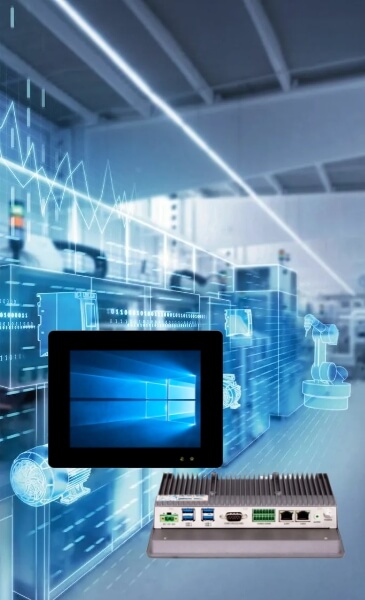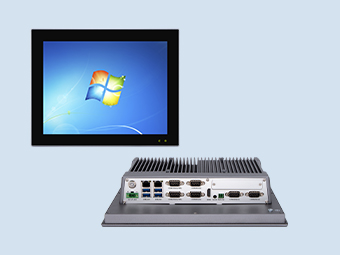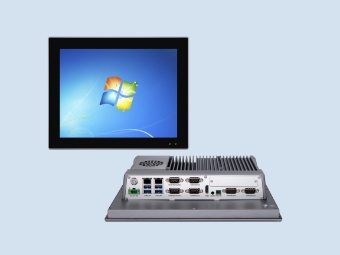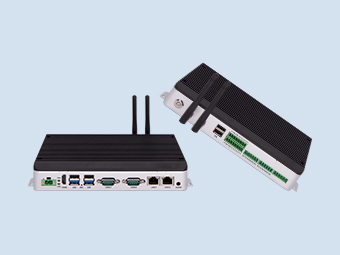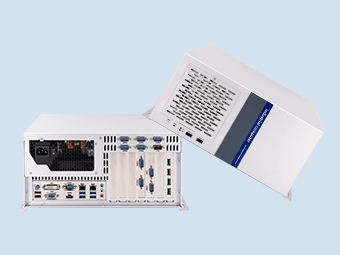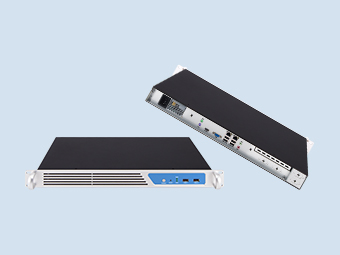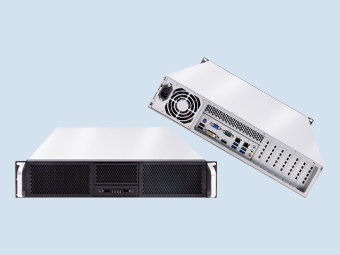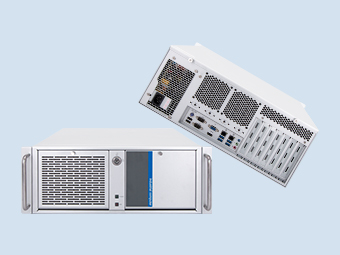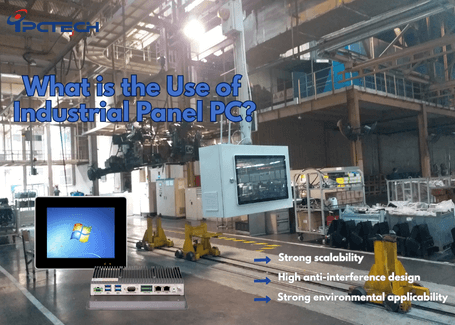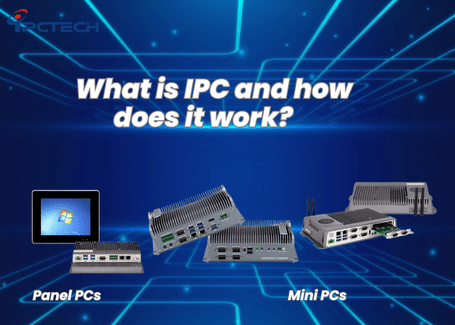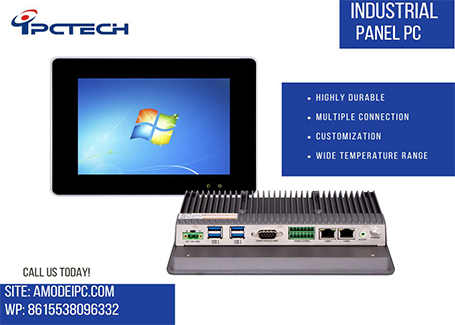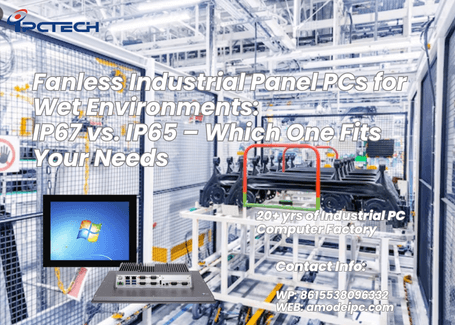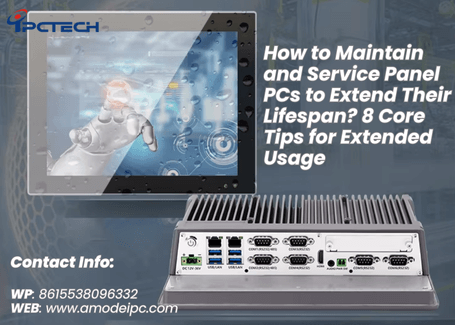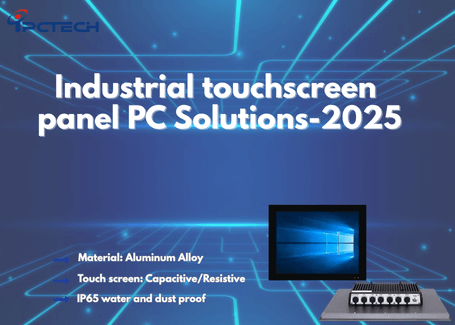What is military grade PC
2025-06-19
In today's rapid development of science and technology, computer equipment has been widely used in various fields. However, when faced with extremely harsh environments, such as hot deserts, cold snowfields, or special scenarios filled with strong vibration and electromagnetic interference, ordinary computers are often difficult to operate normally. At this point, military-grade PCs come to the forefront, working consistently and stably under these harsh conditions.
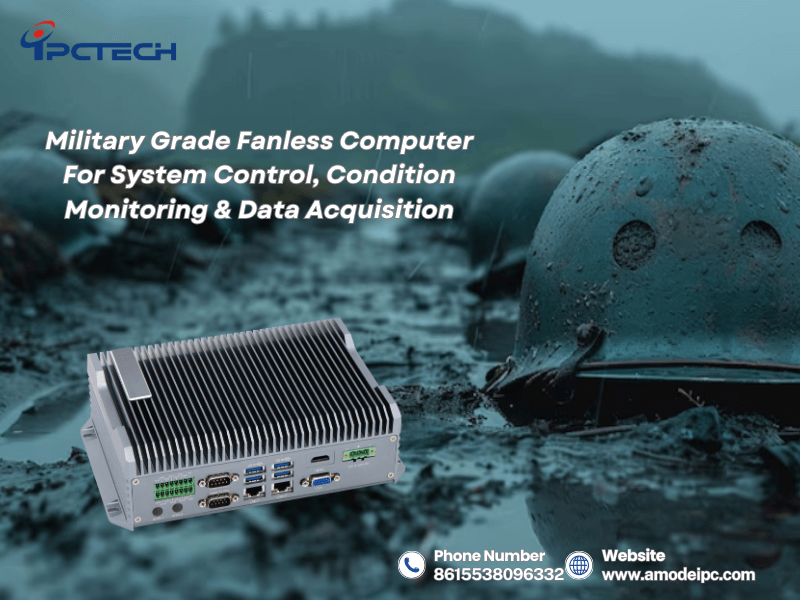
Military-grade PCs, also known as ruggedized computers, are fully compliant with military-specification (mil-spec) standards and offer a quantum leap in durability and environmental adaptability compared to common consumer-grade or commercial computers. These devices are designed from the outset to operate reliably and stably over long periods of time in extremely harsh environments. Whether it is high temperature, low temperature, high humidity, dusty environment, or strong vibration, shock and other complex conditions, military-grade PCs are able to cope with it.
From the hardware level, the military-grade PC is designed with the ultimate pursuit of durability. In order to reduce the risk of mechanical failure due to rotating cooling fans, many military-grade PCs adopt a fanless design, with optimized cooling structures and materials to ensure that the equipment can effectively dissipate heat even when operating under high loads. At the same time, the internal cable connections are eliminated and a cable-free one-piece design is adopted, which not only reduces the probability of failures caused by loose or aging cables, but also further enhances the stability of the device.
In terms of external structure, the keyboard of the military-grade PC is specially sealed to effectively prevent the intrusion of dust and liquid; the screen is made of scratch-resistant TFT material, which ensures clear readability even under direct sunlight, and some of the high-end products are also equipped with night-vision technology to meet the needs of use in special environments. These design details all demonstrate the professionalism and reliability of military-grade PCs in dealing with extreme environments.
To ensure that military-grade PCs meet the highest standards of performance and reliability, a series of rigorous tests are required. These tests not only verify the quality of the equipment, but also ensure its stable operation in real-world applications.
-MIL - STD - 167: This standard is mainly applicable to naval application scenarios, aiming to ensure that computers and monitors can still operate reliably under the vibration generated by ships and onboard equipment. MIL - STD - 167 is designed to simulate the structural strength and stability of equipment that is subjected to the constant and complex vibrations caused by engine operation and wave impacts during ship voyages.
-MIL-STD-461E: This standard focuses on the ability of equipment to withstand electromagnetic interference (EMI) radiation. In modern warfare and industrial environments, electromagnetic environments are extremely complex, and electromagnetic radiation generated by various electronic devices interferes with each other, which may lead to data errors in computer systems, program crashes, etc. EMI MIL - STD - 461E examines the electromagnetic compatibility of military-grade PCs by simulating high-intensity electromagnetic interference environments to ensure that they can still work properly in complex electromagnetic environments.
-MIL - STD - 810: This standard attempts to comprehensively replicate the effects of various environmental factors on equipment and its functionality, thus ensuring that the product design meets the requirements of the environment in which it is intended to be used. It covers a wide range of environmental test items such as high temperature, low temperature, humidity, sand, dust, rain and salt spray. For example, in the high-temperature test, the equipment is required to operate for a long period of time in a high-temperature environment to test whether its performance is stable; in the sand and dust test, the equipment is required to work in an environment filled with sand and dust to verify its dust-proofing capability.
MIL-S-901D: This standard establishes a Class A shock and vibration criterion, which is primarily used to test the ability of marine equipment to withstand the shock loads that may be generated when weapons are used. MIL-S-901D simulates the extreme impacts of weapons firing and explosions that test the structural strength of equipment in naval warfare scenarios, to select military-grade PCs that can withstand high impacts.
MIL Standard 740-1: This standard addresses the issue of on-board noise and is designed to test and ensure that the noise generated by a machine does not exceed the maximum specified limits. In military aviation, where excessive equipment noise not only affects the pilot's ability to hear and communicate properly, but also increases the risk of detection by enemy forces, MIL Standard 740-1 ensures the covert nature of military operations and the safety of personnel by strictly controlling equipment noise.
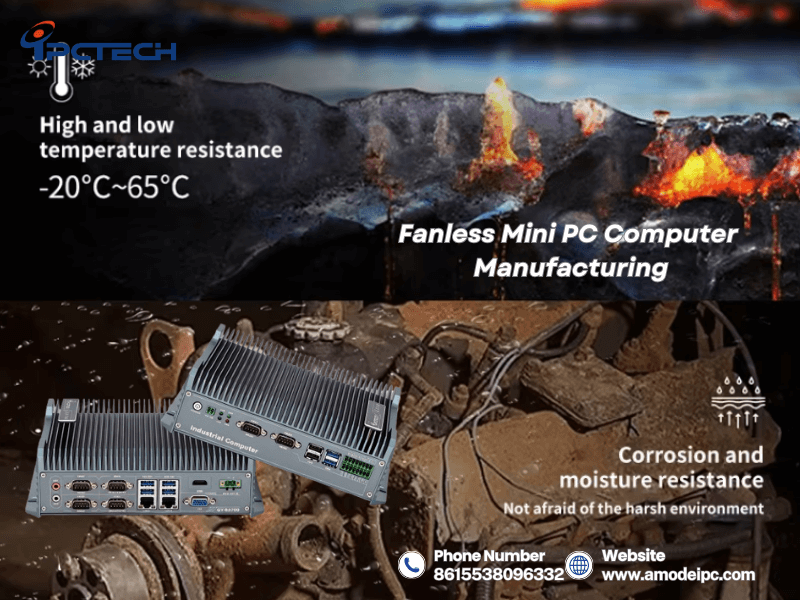
Military-grade PCs were originally born in the military field to meet the needs of the military in complex combat environments. On the battlefield, soldiers need computer equipment that can operate stably under the rain of bullets and harsh weather conditions for critical tasks such as command and control, intelligence collection and analysis, and communication. With the development of technology and cost reduction, the application scope of military-grade PCs is gradually expanding to the industrial field.
In the aerospace industry, military-grade PCs are used in ground testing of aircraft, flight simulation training, and satellite ground control. Aerospace environments require a high degree of reliability and stability, and any minor malfunctions can lead to serious consequences. Military-grade PCs have become an indispensable tool in this field due to their excellent performance.
In the construction industry, construction sites often have harsh environments where dust, dirt, rain and other factors pose a great threat to ordinary computer equipment. Military-grade PCs are able to operate stably in such environments, helping construction personnel to carry out engineering design, progress management and on-site monitoring to improve construction efficiency and safety.
On offshore oil rigs, high temperature, high humidity, and strong corrosion pose serious challenges to equipment. Military-grade PCs are not only able to adapt to such harsh environments, but also ensure the smooth operation of data processing and equipment control during oil exploration and exploitation.
Military-grade PCs differ significantly from consumer-grade PCs in several ways. First, in terms of durability, consumer-grade PCs are often designed to be thin, lightweight, and aesthetically pleasing for daily office and entertainment use, but this design makes them vulnerable to harsh environments. Military-grade PCs, on the other hand, are built to be rugged, with everything from internal structures to external materials specially designed and treated to withstand intense shock, vibration, and extreme environments.
Second, in terms of price, military-grade PCs tend to be expensive. This is due to the use of a large number of rugged, special materials, a carefully reinforced internal structure, and additional features such as cooling fan optimization and stronger power supply. In addition, military-grade PCs are often customized for specific scenarios and needs, further increasing costs. Consumer-grade PCs, on the other hand, are aimed at the mass market and are relatively affordable, as mass production reduces costs.
Finally, in terms of performance and functionality, although consumer-grade PCs are constantly improving in terms of processing speed and graphics performance, they are mainly focused on meeting the needs of daily office, entertainment and general business applications. Military-grade PCs, on the other hand, are more focused on stable operation in extreme environments, with performance configurations aimed at guaranteeing the smooth execution of critical tasks, as well as a wealth of interfaces and expansion capabilities to adapt to the diversified demands for connecting professional equipment.
In this day and age where information security is of paramount importance, military-grade PCs demand the highest level of security. Secure Boot is one of the key components in protecting such systems, ensuring that only trusted firmware and software that has been rigorously certified is loaded during system startup, effectively preventing malware intrusion and tampering, and securing the device from the source of system startup.
Multi-factor authentication is also a fundamental security standard for military-grade PCs. Unlike common username and password login methods, military-grade devices can often be configured with multi-factor authentication methods such as RFID or smart card scanning, which greatly increases the difficulty of illegal access and ensures that only authorized personnel can use the device.
In terms of data security, military-grade PCs are moving toward a tool-less design for removing/installing data storage drives, which adds an extra layer of security for data. When a device needs to be moved or serviced, the data storage drive can be quickly and securely removed, avoiding the risk of a data breach.
In summary, military-grade PCs have become the centerpiece of special environments and mission-critical equipment due to their superior durability, stringent testing standards, wide range of application scenarios and strong security features.
As a professional manufacturer of industrial PCs, ipctech understands the stringent requirements of industrial environments for computer equipment, and has been focusing on the research and development and manufacturing of industrial PCs for many years. By combining advanced technology with rich experience, ipctech has produced a series of industrial PC products with stable performance and reliable quality, which are able to meet the needs of many industries, such as aerospace, construction, energy, etc. Whether in complex electromagnetic environments or harsh climatic conditions, ipctech is able to meet the needs of many industries. Whether it is a complex electromagnetic environment, or harsh climatic conditions, ipctech's industrial computers can operate stably, escorting the efficient production and business development of enterprises.
What is military PC?

Military-grade PCs, also known as ruggedized computers, are fully compliant with military-specification (mil-spec) standards and offer a quantum leap in durability and environmental adaptability compared to common consumer-grade or commercial computers. These devices are designed from the outset to operate reliably and stably over long periods of time in extremely harsh environments. Whether it is high temperature, low temperature, high humidity, dusty environment, or strong vibration, shock and other complex conditions, military-grade PCs are able to cope with it.
From the hardware level, the military-grade PC is designed with the ultimate pursuit of durability. In order to reduce the risk of mechanical failure due to rotating cooling fans, many military-grade PCs adopt a fanless design, with optimized cooling structures and materials to ensure that the equipment can effectively dissipate heat even when operating under high loads. At the same time, the internal cable connections are eliminated and a cable-free one-piece design is adopted, which not only reduces the probability of failures caused by loose or aging cables, but also further enhances the stability of the device.
In terms of external structure, the keyboard of the military-grade PC is specially sealed to effectively prevent the intrusion of dust and liquid; the screen is made of scratch-resistant TFT material, which ensures clear readability even under direct sunlight, and some of the high-end products are also equipped with night-vision technology to meet the needs of use in special environments. These design details all demonstrate the professionalism and reliability of military-grade PCs in dealing with extreme environments.
Tough Test Standards for Military Grade PCs
To ensure that military-grade PCs meet the highest standards of performance and reliability, a series of rigorous tests are required. These tests not only verify the quality of the equipment, but also ensure its stable operation in real-world applications.
-MIL - STD - 167: This standard is mainly applicable to naval application scenarios, aiming to ensure that computers and monitors can still operate reliably under the vibration generated by ships and onboard equipment. MIL - STD - 167 is designed to simulate the structural strength and stability of equipment that is subjected to the constant and complex vibrations caused by engine operation and wave impacts during ship voyages.
-MIL-STD-461E: This standard focuses on the ability of equipment to withstand electromagnetic interference (EMI) radiation. In modern warfare and industrial environments, electromagnetic environments are extremely complex, and electromagnetic radiation generated by various electronic devices interferes with each other, which may lead to data errors in computer systems, program crashes, etc. EMI MIL - STD - 461E examines the electromagnetic compatibility of military-grade PCs by simulating high-intensity electromagnetic interference environments to ensure that they can still work properly in complex electromagnetic environments.
-MIL - STD - 810: This standard attempts to comprehensively replicate the effects of various environmental factors on equipment and its functionality, thus ensuring that the product design meets the requirements of the environment in which it is intended to be used. It covers a wide range of environmental test items such as high temperature, low temperature, humidity, sand, dust, rain and salt spray. For example, in the high-temperature test, the equipment is required to operate for a long period of time in a high-temperature environment to test whether its performance is stable; in the sand and dust test, the equipment is required to work in an environment filled with sand and dust to verify its dust-proofing capability.
MIL-S-901D: This standard establishes a Class A shock and vibration criterion, which is primarily used to test the ability of marine equipment to withstand the shock loads that may be generated when weapons are used. MIL-S-901D simulates the extreme impacts of weapons firing and explosions that test the structural strength of equipment in naval warfare scenarios, to select military-grade PCs that can withstand high impacts.
MIL Standard 740-1: This standard addresses the issue of on-board noise and is designed to test and ensure that the noise generated by a machine does not exceed the maximum specified limits. In military aviation, where excessive equipment noise not only affects the pilot's ability to hear and communicate properly, but also increases the risk of detection by enemy forces, MIL Standard 740-1 ensures the covert nature of military operations and the safety of personnel by strictly controlling equipment noise.
Wide range of applications for military-grade PCs

Military-grade PCs were originally born in the military field to meet the needs of the military in complex combat environments. On the battlefield, soldiers need computer equipment that can operate stably under the rain of bullets and harsh weather conditions for critical tasks such as command and control, intelligence collection and analysis, and communication. With the development of technology and cost reduction, the application scope of military-grade PCs is gradually expanding to the industrial field.
In the aerospace industry, military-grade PCs are used in ground testing of aircraft, flight simulation training, and satellite ground control. Aerospace environments require a high degree of reliability and stability, and any minor malfunctions can lead to serious consequences. Military-grade PCs have become an indispensable tool in this field due to their excellent performance.
In the construction industry, construction sites often have harsh environments where dust, dirt, rain and other factors pose a great threat to ordinary computer equipment. Military-grade PCs are able to operate stably in such environments, helping construction personnel to carry out engineering design, progress management and on-site monitoring to improve construction efficiency and safety.
On offshore oil rigs, high temperature, high humidity, and strong corrosion pose serious challenges to equipment. Military-grade PCs are not only able to adapt to such harsh environments, but also ensure the smooth operation of data processing and equipment control during oil exploration and exploitation.
Differences Between Military-Grade PCs and Consumer-Grade PCs
Military-grade PCs differ significantly from consumer-grade PCs in several ways. First, in terms of durability, consumer-grade PCs are often designed to be thin, lightweight, and aesthetically pleasing for daily office and entertainment use, but this design makes them vulnerable to harsh environments. Military-grade PCs, on the other hand, are built to be rugged, with everything from internal structures to external materials specially designed and treated to withstand intense shock, vibration, and extreme environments.
Second, in terms of price, military-grade PCs tend to be expensive. This is due to the use of a large number of rugged, special materials, a carefully reinforced internal structure, and additional features such as cooling fan optimization and stronger power supply. In addition, military-grade PCs are often customized for specific scenarios and needs, further increasing costs. Consumer-grade PCs, on the other hand, are aimed at the mass market and are relatively affordable, as mass production reduces costs.
Finally, in terms of performance and functionality, although consumer-grade PCs are constantly improving in terms of processing speed and graphics performance, they are mainly focused on meeting the needs of daily office, entertainment and general business applications. Military-grade PCs, on the other hand, are more focused on stable operation in extreme environments, with performance configurations aimed at guaranteeing the smooth execution of critical tasks, as well as a wealth of interfaces and expansion capabilities to adapt to the diversified demands for connecting professional equipment.
Security Features of Military Grade PCs
In this day and age where information security is of paramount importance, military-grade PCs demand the highest level of security. Secure Boot is one of the key components in protecting such systems, ensuring that only trusted firmware and software that has been rigorously certified is loaded during system startup, effectively preventing malware intrusion and tampering, and securing the device from the source of system startup.
Multi-factor authentication is also a fundamental security standard for military-grade PCs. Unlike common username and password login methods, military-grade devices can often be configured with multi-factor authentication methods such as RFID or smart card scanning, which greatly increases the difficulty of illegal access and ensures that only authorized personnel can use the device.
In terms of data security, military-grade PCs are moving toward a tool-less design for removing/installing data storage drives, which adds an extra layer of security for data. When a device needs to be moved or serviced, the data storage drive can be quickly and securely removed, avoiding the risk of a data breach.
In summary, military-grade PCs have become the centerpiece of special environments and mission-critical equipment due to their superior durability, stringent testing standards, wide range of application scenarios and strong security features.
IPCTECH Computers Solutions
As a professional manufacturer of industrial PCs, ipctech understands the stringent requirements of industrial environments for computer equipment, and has been focusing on the research and development and manufacturing of industrial PCs for many years. By combining advanced technology with rich experience, ipctech has produced a series of industrial PC products with stable performance and reliable quality, which are able to meet the needs of many industries, such as aerospace, construction, energy, etc. Whether in complex electromagnetic environments or harsh climatic conditions, ipctech is able to meet the needs of many industries. Whether it is a complex electromagnetic environment, or harsh climatic conditions, ipctech's industrial computers can operate stably, escorting the efficient production and business development of enterprises.
Recommended
